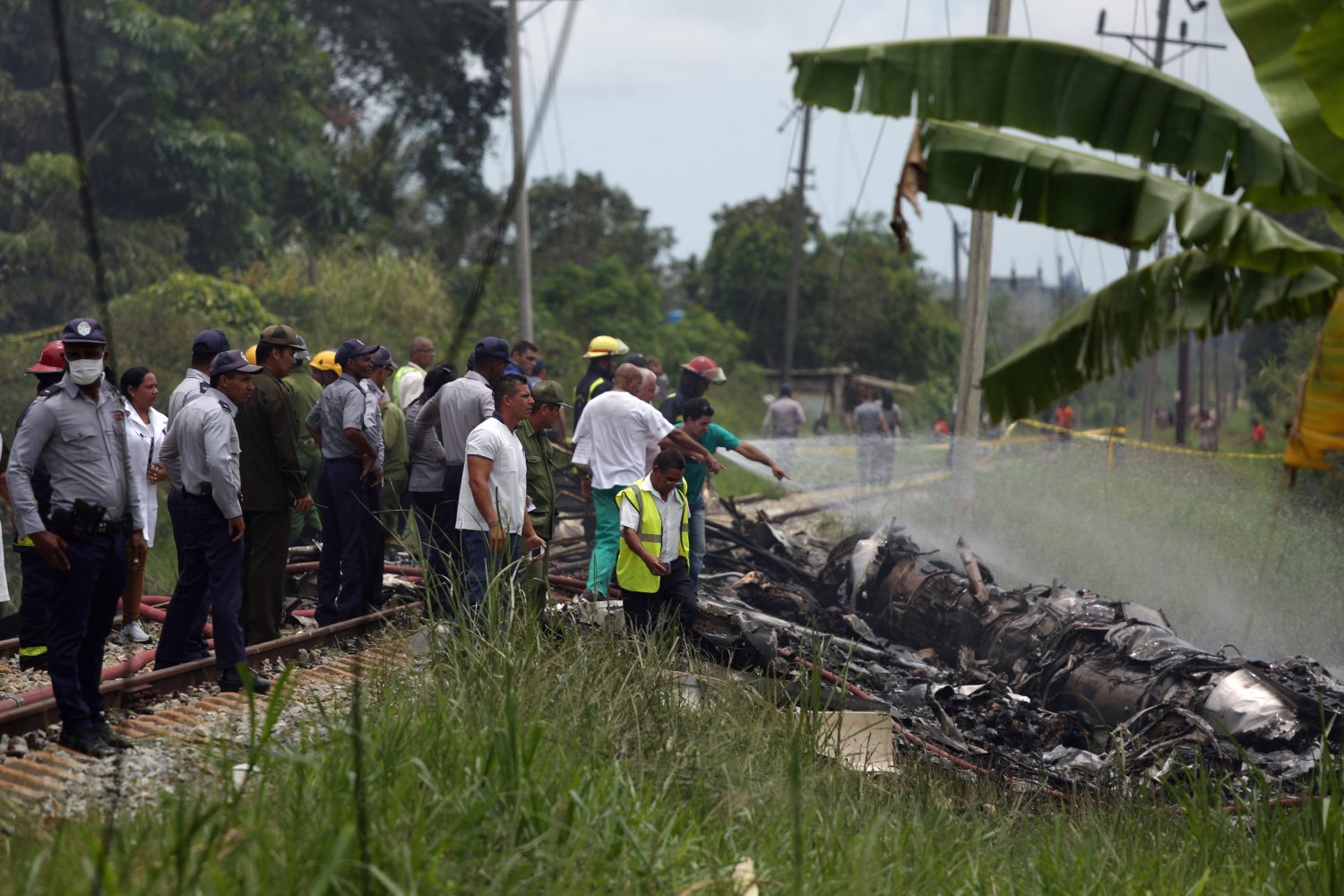It is possible that more could have been done to alert the International Civil Aviation Organisation (ICAO) about the issues encountered during the local operation of the aircraft at the centre of Cuba’s recent fatal plane crash, according to Chairman of the Guyana Civil Aviation Authority (GCAA) Board of Directors Lawrence London.
The ill-fated Cuban plane, which was used by the Honduras-based airline Easy Sky through a lease agreement with Global Aerolineas of Mexico, had been grounded in Guyana over safety infractions before leaving the Guyanese market in October, 2017.
However, on May 18th, less than one month after Cuba’s national carrier, Cubana de Aviacion, began renting the over three-decades-old Boeing 737 from Mexican charter company Damojh, the aircraft crashed into a field shortly after take-off from Havana en route to Holguin, leaving 110 persons dead.
“We regret that this has happened; it’s a sad day when an aircraft goes down and 110 people suffer but that could have been a disaster happening right here and I think while we were able to prevent it from happening over Guyana, maybe we should have done a little but more through ICAO to prevent it from happening period and that is something we will look at and ensure that the trough will bear milk. When I say that our relationships with ICAO must be a little bit more robust, they have given us good support and we must give them the support they need in ensuring safe skies all over the world,” London said.
Director General of the GCAA Lt. Col. (Ret’d) Egbert Field said one of the major issues unearthed during the investigation was the alleged overloading of the aircraft with cargo.
According to Field, when inspectors boarded the plane here, they had noticed that bags were stacked in between rows of the plane seats, with passengers’ resting their feet on top of them. He further noted that during a late night operation, an entire cart of cargo had to be removed from the aircraft so that it could be at the stipulated weight.
Asked what measures are in place to deal with local ground handlers who participate in the overloading of planes, Field explained that because the local ground handling sector is not bound by any regulations, the GCAA has no real enforcement power over it but it is moving towards that so that it could take action in future.
“There isn’t a standard right now for certifying handlers of airlines. The Authority certifies airlines. Our regulations and even in the articles of the convention [do] not speak to certifying handlers,” he said.
Field further noted that the weakest link in aviation are the ground handlers and therefore the GCAA is taking steps towards including in their regulations the certification of handlers even though ICAO mandates it.
Deputy Director of the GCAA Artie Heeralall, during the official opening of the 15th Annual General Meeting of the Caribbean Aviation Handlers’ Association earlier this month, had made the announcement, while saying that the regulation of such operations would improve the local aviation sector.
Heeralall, in her remarks, had noted that while Guyana would have in the past had a low level of aviation activity, there were no efforts at the time to regulate services such as ground handling operations.
This has since changed, she said, as an increase of air traffic would bring a demand for support services, which would become an integral part of the sector.
“In Guyana because of our low level of aviation activity we did not put the regulatory regime in place because we considered it then a support service, but it is going to transition into one of the most important services… What we consider support services is what will become core services to the aviation system,” Heeralall posited, before announcing GCAA’s intention to regulate the services.
In April, 2017, a decision was made by GCAA to suspend the airline’s operations in light of several safety concerns. At the time, the suspension resulted in an estimated 433 Cuban passengers being stranded at the Cheddi Jagan International Airport over the weekend and into Monday.
Field, in a statement, had explained that the safety deficiencies uncovered after the Authority’s inspectors conducted oversight inspections, following reports on non-standard procedures by Easy Sky airline, were what caused the suspension of its operations.
However, he later announced that approval was granted for the airline to conduct limited operations under the oversight of the GCAA to effect the repatriation of the stranded passengers, following the rectification of the short-term safety deficiencies by Easy Sky.
The airline would remedy the safety complaints and continued flights here for an additional six months until its one year contract expired in October, 2017. It never applied for a renewal or returned to Guyana.
Easy Sky had been first introduced to Guyana in October of 2016 by its local partner, Roraima Airways. At the time of its introduction to Guyana’s aviation sector, the airline had expressed its commitment to forging reliable and sustained relationship with Guyana by creating an air link to Cuba and countries in Central America.









